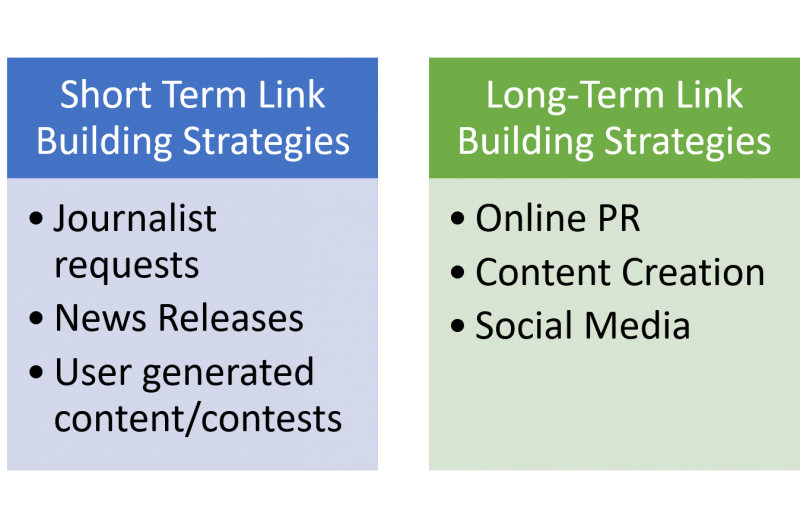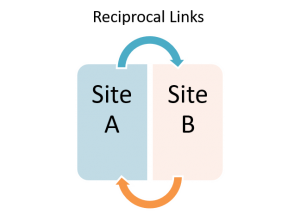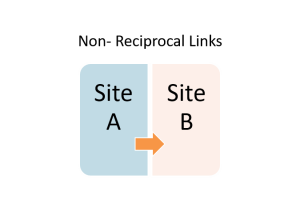Link building is the practice of garnering quality, relevant links from external websites to yours. Having high-quality sites link to your site with keyword-rich anchor text is one of the best ways to improve your website’s page rankings, credibility, and targeted traffic, making it a cornerstone of any effective search engine optimization (SEO) campaign.
The more “link popularity” your site has, the better your online presence looks to search engines and readers alike. Think of building links as love and hugs pointing in the direction of your website.
 The more “link popularity” your site has, the better your online presence looks to search engines and readers alike. Think of building links as love and hugs pointing in the direction of your website.
The more “link popularity” your site has, the better your online presence looks to search engines and readers alike. Think of building links as love and hugs pointing in the direction of your website.Link Building is Still Important
Search engines, particularly Google, have cracked down big time on low-quality and spammy links. This has led some to believe that backlink building is no longer a smart strategy.
In fact, link building is still a highly effective strategy, when done right. Considering that links remain one of Google’s top ranking signals, it would be detrimental to any business to disregard them. As long as people and search engines use links to navigate through the web, they will remain an important part of digital marketing
Quality vs. Quantity
But not just any links will do. Link building is about quality, not quantity. Backlinks from authoritative, high quality websites are the ones you want to boost your visibility in search engine results pages (SERPs).
Conversely, having a link profile full of spammy, low-quality links can have a negative impact on your search engine performance. Again, Google’s algorithm has evolved over the years to sniff out and penalize sites that use questionable link building techniques.
So how do you ascertain the value of a link? There are several factors to consider:
- Page-level Page Rank: Despite thousands of algorithm changes, links on pages with high PageRank still tend to have the most ranking power.
- Referring domains: Links from sites with thousands (or millions) of referring domains usually pull in more ranking power.
- Domain authority: Moz’s Domain Authority complements PageRank.
- Trust rank: Links from highly trusted sites (news sites, .edu domains, etc.) can provide a higher rankings boost.
- Contextual links: Links surrounded by content are significantly more powerful than links tucked away in a sidebar or footer.
- Number of outbound links: A link on a page with hundreds of outbound links will have significantly diluted PageRank.
- Linking domain relevancy: A link’s power lies partially in how topically related to your site it is.
- Anchor text: Search engines still give a slight edge to anchor text that contains some target keywords.
- Co-citations: The text surrounding the link may play a role in the link’s ranking power for a particular keyword.
- Nofollow vs. dofollow: Nofollow links don’t pass PageRank and therefore likely have no influence on rankings.
Short- and Long-term Link Building Strategies
Getting quality links fast can be challenging. That’s why we recommend employing a good mix of relatively simple, short-term link building strategies along with effective long-term methods:

Short-Term SEO Link Acquisition Strategies
- Journalist requests: Services such as HARO (Help a Reporter Out) can let you know when a journalist is writing about your industry. Responding to these requests can help you get inbound links and exposure for your company.
- News releases: These aren’t your dad’s press releases! Today’s online versions allow you to submit to several industry and new publications at once. These allow you to create buzz that can lead to social shares, brand awareness, and yes, links back to your website.
- User-generated content and contests: Invite influencers in your industry for your different buyer personas to submit guest blog posts to your site. This often results in the influencer linking back to your site. Also, consider running contests to build your fan base and get backlinks. Do email outreach to a list of contacts to tell them about the contest and post/promote it on social media to target your audience and create buzz that could result in backlinks.
Long-term SEO Link Acquisition Strategies
- Online PR: Building relationships with media outlets, trade publications, and bloggers (influencer research, online PR)
- Content Creation: One of the best way to earn quality links is to creating valuable content. Guest blogging on other authoritative websites is an extension of this strategy and can garner quality links from your posts back to your site.
- Social media: Sharing that quality content on social media (“socializing” it) is a great way to encourage clicks and links.
What About Reciprocal Links?
Reciprocal links are those where websites link to each other. This is in contrast to one-way links where site A links to Site B but Site B does not link back to Site A.


There is long-held stigma against reciprocal links, mostly thanks to spammy sites that exist for nothing else than to trade links. But that doesn’t mean you should go on an all-out boycott against reciprocal links. When they occur between two related websites in a natural way, they can build trust.
Build Quality Backlinks with Pole Position Marketing
Pole Position Marketing offers professional link building services focused on seeking out the best linking opportunities for your specific business and industry. Employing proven tactics, extensive research, and good old fashioned relationship building, we can help you build a link profile that will boost your search engine visibility and that integrates seamlessly with the rest of our digital marketing efforts.
